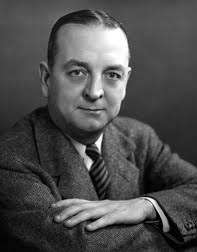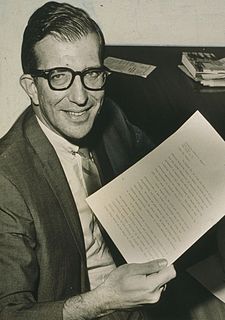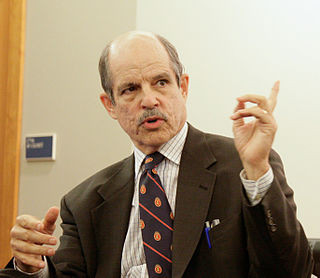A Quote by Milton Friedman
There is no other complex field in our society in which do-it-yourself beats out factory production or market production. Nobody makes his or her own car. But it is still the case that parents can perform the job of educating their children [homeschooling], in many cases better than our present education system.
Related Quotes
Private property in the instruments of production is an institutional device both for dispersing power and for securing effective organization of production. The only simple property system is that of a slave society with a single slave owner - which, significantly, is the limiting case of despotism and of monopoly. Departure from such a system is a fair measure of human progress.
The illusion that mechanical progress means human improvement ... alienates us from our own being and our own reality. It is precisely because we are convinced that our life, as such, is better if we have a better car, a better TV set, better toothpaste, etc., that we condemn and destroy our own reality and the reality of our natural resources. Technology was made for man, not man for technology. In losing touch with being and thus with God, we have fallen into a senseless idolatry of production and consumption for their own sakes.
Production for sale in a market in which the object is to realize the maximum profit is the essential feature of a capitalist world-economy. In such a system production is constantly expanded as long as further production is profitable, and men constantly innovate new ways of producing things that will expand the profit margin.
Smith, as we have said, was not the proponent of any one class. He was a slave to his system. His whole economic philosophy stemmed from his unquestioning faith in the ability of the market to guide the system to its point of highest return. The market — that wonderful social machine — would take care of society's needs if it was left alone. "Consumption is the sole end and purpose of all production," he wrote.
Consider children as a beat. Clearly not an institution of power, children don't vote and they don't pass taxes. They have no money, and they don't buy newspapers or watch the news on television. Consequently, children are one of the most neglected segments of society in the news, except as a subtopic of other power beats such as education, family, and crime. Children are in serious trouble in this society, which means the foundation of our society is in trouble, which means the future is in trouble, and that is news.
The climate-change industrial complex pontificates that the U.S. has to stop using coal to save the planet. But even if the U.S. cut our own coal production to zero, China and India are building hundreds of coal plants. By suspending American coal production, we are merely transferring jobs out of the U.S.
It's time to admit that public education operates like a planned economy, a bureaucratic system in which everybody's role is spelled out in advance and there are few incentives for innovation and productivity. It's no surprise that our school system doesn't improve: It more resembles the communist economy than our own market economy.
Education is 'the guardian genius of our democracy.' Nothing really means more to our future, not our military defenses, not our missiles or our bombers, not our production economy, not even our democratic system of government. For all of these are worthless if we lack the brain power to support and sustain them.
One of our needs in a very complex society, where we encounter more people every day than probably our ancestors encountered over their whole lifetime, is our need to very rapidly evaluate other people. And one of the most potent ways of doing that is through our automobiles. So, a car isn't just a thing. It's a set of symbols and associations that we have to figure out in order to understand how we navigate our social worlds with that car.
We must establish all over the country schools of our own to train our own children to become scientists, to become mathematicians. We must realize the need for adult education and for job retraining programs that will emphasize a changing society in which automation plays the key role. We intend to use the tools of education to help raise our people to an unprecedented level of excellence and self respect through their own efforts.
The market economy is the social system of the division of labor under private ownership of the means of production. Everybody acts on his own behalf; but everybodys actions aim at the satisfaction of other peoples needs as well as at the satisfaction of his own. Everybody in acting serves his fellow citizens.
And once we have given our community a good start,' I pointed out, ' the process will be cumulative. By maintaining a sound system of education you produce citizens of good character, and citizens of sound character, with the advantage of a good education, produce in turn children better than themselves and better able to produce still better children in their turn, as can be seen with animals.
Every individual is continually exerting himself to find out the most advantageous employment for whatever capital he can command. It is his own advantage, indeed, and not that of the society which he has in view. But the study of his own advantage naturally, or rather necessarily, leads him to prefer that employment which is most advantageous to society... He intends only his own gain, and he is in this, as in many other cases, led by an invisible hand to promote an end which was not part of his intention



































